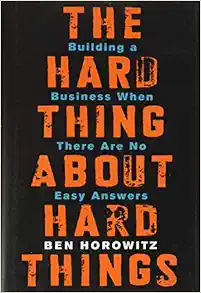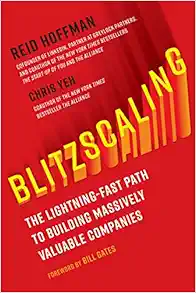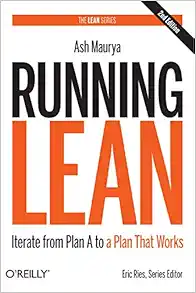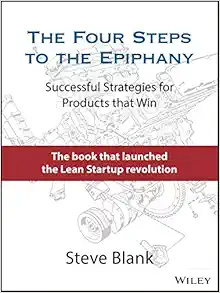Be an Entrepreneur
Don’t be fooled, it is going to be a bumpy ride and most of your attempts have a huge chance of failure. Get ready for the most difficult time of your life.
Problem Solvers
Entrepreneurs are Problem Solvers so you have to Love the Problem otherwise you might end up giving a solution to a problem no one has.
Most entrepreneurs work on a problem they have experienced themselves. That makes having empathy something even more natural.
Personality
| Characteristic | |
|---|---|
| Resilience | The capacity to recover quickly from difficulties. Ability to overcome obstacles. Keeps you moving forward despite the obstacles and failures you will face. “It’s not how hard you can hit. It’s how hard you can get hit and keep moving forward.” - Rocky Balboa |
| Passion, Intensity, and Energy | Don’t settle. When you overcome an obstacle or achieve a goal, look for the next challenge. Keep challenging yourself. |
| Empathy | Empathy for the client, Empathy for your team - The real empathy must be natural. |
|
Leave your Comfort Zone
|
Readiness to leave your comfort zone. Experiment with new things, and new possibilities even if you don’t have enough knowledge or previous experience.
|
| Self-motivated and Self-starter | Not everything is fun to do and in the beginning, most of the time, you have no one to turn to and you simply can’t stop. |
| Eager to Learn | Capacity to accept that there are a lot of things you don’t know or don’t know deep enough. Entrepreneurs are always learning and improving fast. That is also why we mention on almost every page of this site Recommended Books (see the full list here). |
| Topic | References |
|---|---|
| Entrepreneur Personality | Six Personality Traits Of Successful Entrepreneurs (by Forbes) |
| Resilienve | What is Resilience |
| Leave yout Confort Zone | 6 Reasons To Step Outside Your Comfort Zone (by Huffpost) |
Dealing with Uncertainty
Entrepreneurship often involves Uncertainty, that is why there is so much risk involved.
Building a Startup means working on reducing the uncertainties and therefore the risks of not addressing the right problem with the right solution at the right price using the right channel.
The process for reducing uncertainty and risks, in the beginning, can be found on Starting Up and better detailed in Product Discovery
Embrace failure
Expect to fail and be prepared to learn from it.
New businesses tend to fail or go through hard times until they can succeed. So knowing how to handle failure is vital to overcome them.
- You need to fail to succeed.
- Failing is not bad. Failing must be celebrated.
- You only learn when you fail, not when you succeed.
- But learn to fail fast. Learn when to move on and stop pushing.
Watch “The unexpected benefit of celebrating failure” (by Astro Teller — Head of Moonshot Factory at Google)
- Check out the Fail Con conference for startup founders to learn from and prepare for failure, so they can iterate and grow fast. This is a conference where entrepreneurs share their failures and what they learned from them.
- Read this article from Hotjar: App mistakes: the 10 lessons we learned launching (& killing) our $200K mobile app
Never stop Learning
Lifelong Learning means the ongoing, voluntary, and self-motivated pursuit of Knowledge.
Why keep learning?
- Technology gets outdated fast
- New, better, and costly ways of doing things are created daily
- Stay always one step ahead
Stay up-to-date by
- Listening to Podcasts
- Reading Blogs
- Participating in Meetups
For each topic, I will be providing curated References to books, podcasts, and blogs.
Advice vs Experience
Advice is someone else’s conclusion from experience or context that you don’t know. What is that person’s experience? Is it his/her experience or others?
Advice is an opinion and, instead of that, you need to make your own decisions based on information. Each person’s experience is unique and specific for the moment they experienced it. Instead of Advice, ask people to tell the story behind their similar experiences so that you can understand better their decisions and make your own.
Experiences tell you more than advice. Experiences with success or failure can teach you many things.
Caution: Psychological Patterns
| Impostor Syndrome | People with impostor syndrome engage in a psychological pattern of doubting their competence and accomplishments. In short, they feel like frauds. They attribute any successes or recognition to either luck or deception. |
| Planning Fallacy | The human tendency to be over-optimistic in making time estimations. Focus less on planning and more on experimenting, learning, and improving. |
| FoMo | Fear of Missing Out is a feeling of anxiety or insecurity over the possibility of missing out on something, as an event or an opportunity. Do your best, keep up-to-date and, most of all keep improving. |







